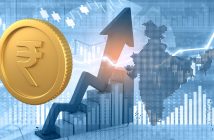By Sanjeev Sharma
New Delhi, Jan 7 (IANS) Progress in human development has been thrown into the reverse by a global pandemic, a land war in Europe, a massive inflationary shock, and mounting climate catastrophe.
After decades of globalisation pushing unprecedented global growth and the emergence of a robust global middle class, we are now seeing a majority of the world’s 8 billion people fare worse, not better, in education levels, life expectancy, economic well-being, and safety and security.
The headwinds for human development will grow in 2023, Eurasia Group said in a report on top risks for 2023, which includes China.
China, too, faces massive economic challenges, much greater than other major countries. Its economy is still expected to surpass that of the United States in GDP by 2030, but there is a growing chance it never does. And if it does, this does not herald a Chinese century as China’s population halves by 2100.
Xi Jinping emerged from China’s 20th Party Congress in October 2022 with a grip on power unrivaled since Mao Zedong, Eurasia Group said.
“The last time a Chinese leader had this much power to pursue such a misguided policy agenda, the result was widespread famine, economic ruin, and death. While another Cultural Revolution or Great Leap Forward is unlikely given the size of China’s educated urban middle class, Xi’s consolidation of power will take China at least a few steps backward this year,” Eurasia Group said.
Having stacked the Communist Party’s Politburo Standing Committee with his closest allies, Xi is virtually unfettered in his ability to pursue his statist and nationalist policy agenda. But with few checks and balances left to constrain him and no dissenting voices to challenge his views, Xi’s ability to make big mistakes is also unrivalled, it added.
Arbitrary decisions, policy volatility, and elevated uncertainty will be endemic in Xi’s China. That’s a massive and underappreciated global challenge, given the unprecedented reality of a state capitalist dictatorship having such an outsized role in the global economy.
Xi has committed a series of missteps in the recent past.
“Last year we warned that China had walked itself into a zero-Covid trap; unfortunately, we were right,” the report said.
An opaque crackdown on private technology companies undercut global investor sentiment, put some of the country’s most promising firms into a deep freeze, and wiped out an estimated one trillion dollars in market value.
The ill-effects of centralized decision-making on public health are now on display. Just weeks ago, Xi ended the zero-Covid policy in the same arbitrary manner that he implemented it more than two years ago.
His snap decision to lift all restrictions and let the virus spread unchecked despite low elderly vaccination rates, without warning citizens and local governments, and absent sufficient preparations to cope with the resulting outbreaks will all but ensure that more than
one million Chinese people will die, many unnecessarily (though most will not be reported).
Only a leader with unchallenged power could execute such an extraordinary — and extraordinarily costly — reversal, Eurasia Group said.
Moreover, if a severe new strain of Covid were to emerge, Maximum Xi makes it more likely that it would spread widely in China and beyond.
China would be unlikely to identify the new variant because of reduced testing and equencing, to recognize more severe disease due to an overwhelmed health system, and to let news of a more severe variant get out given Xi’s track record on transparency. The world would have little or no time to prepare for a deadlier virus.
A second area of concern is the economy, where Xi’s drive for state control will produce arbitrary decisions and policy volatility.
China’s economy is in a fragile state after two years of harsh Covid-19 controls. Forced deleveraging efforts and plummeting homebuyer and market sentiment have ground growth in the critical real estate sector to a halt, depleting local government revenue.
Debt defaults threaten to spread to the broader financial sector. It has long been the case that more global GDP growth was coming from a politically riskier market as China’s economic footprint expanded.
But in 2023, China’s outlook is even more important, given the rising risks of recession elsewhere, the report said.
This backdrop — of weakening global growth and deepening domestic challenges — demands competent economic management from Beijing. But the Chinese leadership is delivering opacity and unpredictability.
China’s sudden decision to delay the release of long-scheduled economic data during the 20th Party Congress was an ominous sign of things to come for global markets.
At a minimum, heightened market and company sensitivity to the singular voice of Xi will invite volatility in response to any signals he conveys, resulting in a repricing of credit risks that in turn drives debt defaults and bankruptcies.
Beijing will struggle to manage these pressures in an environment of centralized power and stifled debate, the report said.
(Sanjeev Sharma can be reached at Sanjeev.s@ians.in)
–IANS
san/arm




